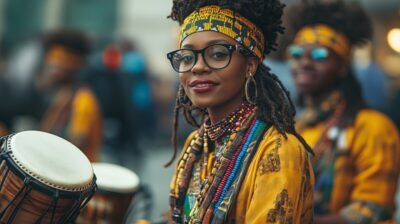✊🏾 1. Many Black women rejected the idea that womanhood flows from whiteness. Throughout history, Black women have critiqued the idea that womanhoo

✊🏾 1. Many Black women rejected the idea that womanhood flows from whiteness.
Throughout history, Black women have critiqued the idea that womanhood must be defined by white standards—whether in looks, roles, or social status.
Womanist thinkers like Alice Walker, Clenora Hudson-Weems, and Amina Mama have affirmed that Black womanhood is culturally, spiritually, and communally distinct—not dependent on recognition from white systems.
For these thinkers, Black women never needed validation from white women to know who they are.
“Being a woman is not something white women bestow—it’s something I embody, rooted in my lineage.”
🧕🏽 2. Grassroots Black women centered survival over symbolic recognition.
In local communities, church kitchens, midwife circles, freedom schools, and front porches—Black women weren’t debating the loss of white recognition.
They were building protection, raising generations, and living their womanhood in full.
Many elders taught: We never needed to be like them—we just need to be free, well, and heard.
🪶 3. Black women challenged the framing that made whiteness the measuring stick.
Even in current times, many Black thinkers, creators, and culture workers are saying:
“Why must we frame our worth in contrast to white womanhood?
We are not an echo. We are an origin.”This is seen in:
The rise of Afrocentric feminism, which centers African spiritualities, aesthetics, and ancestral values of womanhood.
Cultural critiques that reject European beauty and behavioral standards.
Healing spaces that affirm softness, resistance, rage, and rest as expressions of Black womanhood—not borrowed ideals.
🌿 4. Black womanhood never disappeared. It was distorted—but never gone.
The mammy, jezebel, and sapphire stereotypes tried to reduce Black women to roles that served or threatened others—but our true womanhood lived on.
Through humming lullabies, Freedom Schools, riot kitchens, altar building, and birthwork—we carried our femininity and fullness in ways empire never understood.
✨ Final Truth:
Black women did not lose womanhood because white women refused to share.
We were misnamed, misrepresented, and misunderstood.
But we never stopped being women. On our terms. In our way. With our people.
✨ Affirmations: I Was Born a Black Woman—And That Is Sacred
I was born a Black girl, became a Black woman, and I carry the wisdom of both in my bones.
My womanhood was born, lived, and embodied with power and grace.
Being born female shaped my path, my strength, my scars, and my sacred knowing. I honor all of it.
I don’t need to be redefined to be respected. I was born whole, and I remain whole.
My body is not a mistake. It is an altar. It is a witness. It is worthy of care, truth, and protection.
I am not becoming a woman—I am a woman. I have been one from the beginning.
I come from a lineage of Black women born female who survived, created, nurtured, and led. I continue that legacy with pride.